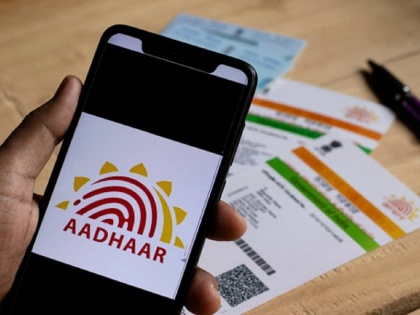UIDAI Set to Clarify Aadhaar Use for Age Verification with Risk-Based Assessment
By Lokmat English Desk | Published: February 19, 2024 09:02 AM2024-02-19T09:02:30+5:302024-02-19T09:02:45+5:30
In response to concerns regarding the recent directive to discontinue the usage of Aadhaar as a date of birth ...

UIDAI Set to Clarify Aadhaar Use for Age Verification with Risk-Based Assessment
In response to concerns regarding the recent directive to discontinue the usage of Aadhaar as a date of birth proof, the Unique Identification Authority of India (UIDAI) is reportedly set to issue a clarification soon. This clarification aims to address potential inconveniences faced by the public and beneficiaries of government schemes.
It is expected that individuals relying on Aadhaar as a proof of age may continue to do so after undergoing a risk-based assessment. Aadhaar, a biometric-linked identification proof, has become widely used in various sectors including PAN cards, provident fund, and bank accounts. The UID plays a crucial role in facilitating direct benefit transfers to millions of beneficiaries of government welfare schemes, forming an integral part of what the Centre refers to as the JAM (Jan Dhan bank accounts, Aadhaar, and Mobile Phones) trinity.
In a missive dated December 2023, the UIDAI directed all agencies utilizing Aadhaar for identity authentication to remove it from the list of acceptable documents for verifying an individual's date of birth. This decision, according to the authority, is a reaffirmation of its established stance and has been underscored by various judgments from High Courts. Consequently, Aadhaar ID cards now prominently feature a disclaimer stating that they serve as proof of identity rather than citizenship or date of birth.
According to a report of The Hindu, Responding to a query on the issue, Finance Secretary T.V. Somanathan said, I am certain that Central ministries will work out an appropriate arrangement to see that the public and beneficiaries of various schemes are not adversely affected. A senior Electronics and IT Ministry official indicated to The Hindu that the UIDAI would not withdraw the directive but would soon issue an advisory for agencies that rely on Aadhaar authentication for welfare benefits and KYC (Know Your Customer) compliance purposes.
The recent UIDAI circular underscores our position that an Aadhaar number serves to establish an individual's identity through authentication and is not inherently a proof of date of birth. However, there is likely to be a forthcoming clarification from UIDAI, shifting the responsibility onto user agencies to either accept the date recorded in Aadhaar records or conduct further verification. This approach emphasizes a risk-based assessment, stated an official, who requested anonymity due to the sensitivity of the matter.
The date of birth and address listed in Aadhaar are merely a reasonable estimation based on documents provided during enrollment. They should not be regarded as indisputable evidence for these details. It is at the discretion of the relevant entity to determine whether to accept them or to request additional documents after evaluating the associated risks of utilizing Aadhaar authentication, the official elaborated.
Open in app